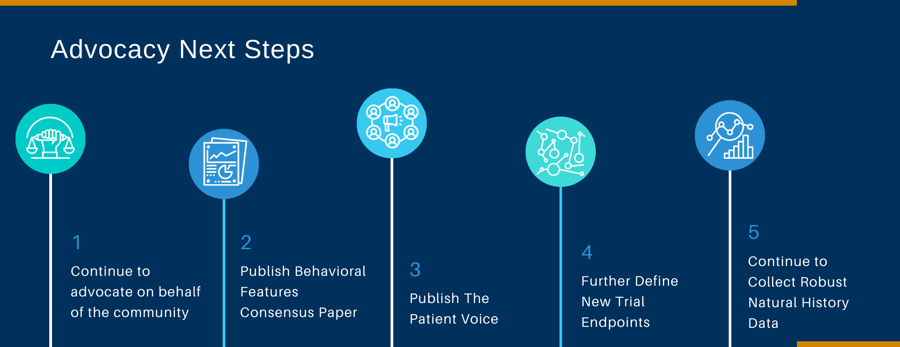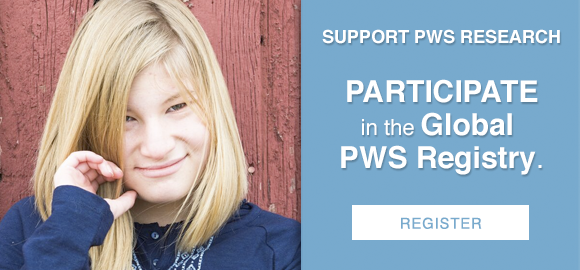For more than a decade, FPWR has partnered with families and other PWS groups (PWSA|USA, IPWSO) to advocate for PWS treatments. We've worked diligently to build resources that address the FDA’s call for patient experience data, demonstrating high disease burden and the need for effective therapies addressing hyperphagia. We've conducted surveys, established a robust online patient registry, and funded research into patient preferences so that we can effectively advocate for new treatments for PWS and bring the caregiver and patient voice to the FDA.
Until a CURE for PWS has been found, FPWR will continue to advocate for the advancement of new, safe and effective drugs and devices to treat the challenges our loved ones with PWS face. This year, in addition to the Community Response Letter that FPWR and PWSA|USA submitted to the FDA requesting regulatory flexibility when reviewing new treatments for PWS, we have a number of advocacy efforts to advance:

Continue to collect robust natural history data
The FDA, as a general standard, requires positive results in 2 controlled studies or 1 well-controlled study with confirmatory evidence, such as natural history data. The Global PWS Registry is currently collecting natural history data that may support PWS clinical trials. We need the members of the PWS community to continue to complete surveys in the Registry so that our data reflects the entire PWS population.
Publish ‘Behavioral Features’ consensus paper
Based on meetings with the FDA, it is clear that terms commonly used to describe PWS behaviors can be interpreted differently in the general population. We are therefore developing a consensus paper that defines terms commonly used to describe PWS behaviors: hyperphagia, anxiety, temper outbursts, rigidity, social cognition, and obsessive-compulsive behaviors. These consensus definitions, developed by leading experts in PWS, will be shared with the FDA regulatory staff to guide conversations on PWS-associated behaviors.
Publish ‘The Patient Voice’ paper
With support from the Prader-Willi Syndrome Clinical Trial Consortium (PWS-CTC), Dr. Elizabeth Dykens has completed a qualitative study on the perceptions of individuals with PWS regarding the challenges of PWS, unmet needs, and treatment preferences. Findings from this study will be published and used to educate the FDA.
Continue the work of the PWS-CTC defining new trial endpoints
Establishing additional clinical trial endpoints that accurately define what a positive result in PWS patients looks like is imperative to successful clinical trials. Clinical significance of the treatment effect and impact on aspects of PWS, other than hyperphagia, such as overall quality of life and the functioning of the participant, have not been fully explored, and some interventions may positively impact different or additional aspects of the disorder, including physical, cognitive, and behavioral symptoms, which are not captured by current outcome measures. The PWS-CTC will continue to develop and evaluate new endpoints for PWS clinical trials.
-1-1.png?width=900&name=PWS%20Advocacy%20Activities%20(1)-1-1.png)
Are you ready to take the first step?
The #1 activity you can do to help advocate for your loved one is to participate in the Global PWS Registry.
The Registry is a powerful tool for the PWS community to advance understanding of PWS, areas of unmet need, standards of care, and new therapies. Data from the registry is shared back to the PWS community, used by researchers and scientists to advance PWS research, and has been the basis of our discussions with the FDA as we help them understand our community's need for treatments.
In our recent community response letter to the FDA, one dozen resources were shared to support the approval of new Prader-Willi syndrome treatments. Many of those resources were developed directly from registry data!
We encourage you to enroll in the registry and update your surveys annually. Get started today!








